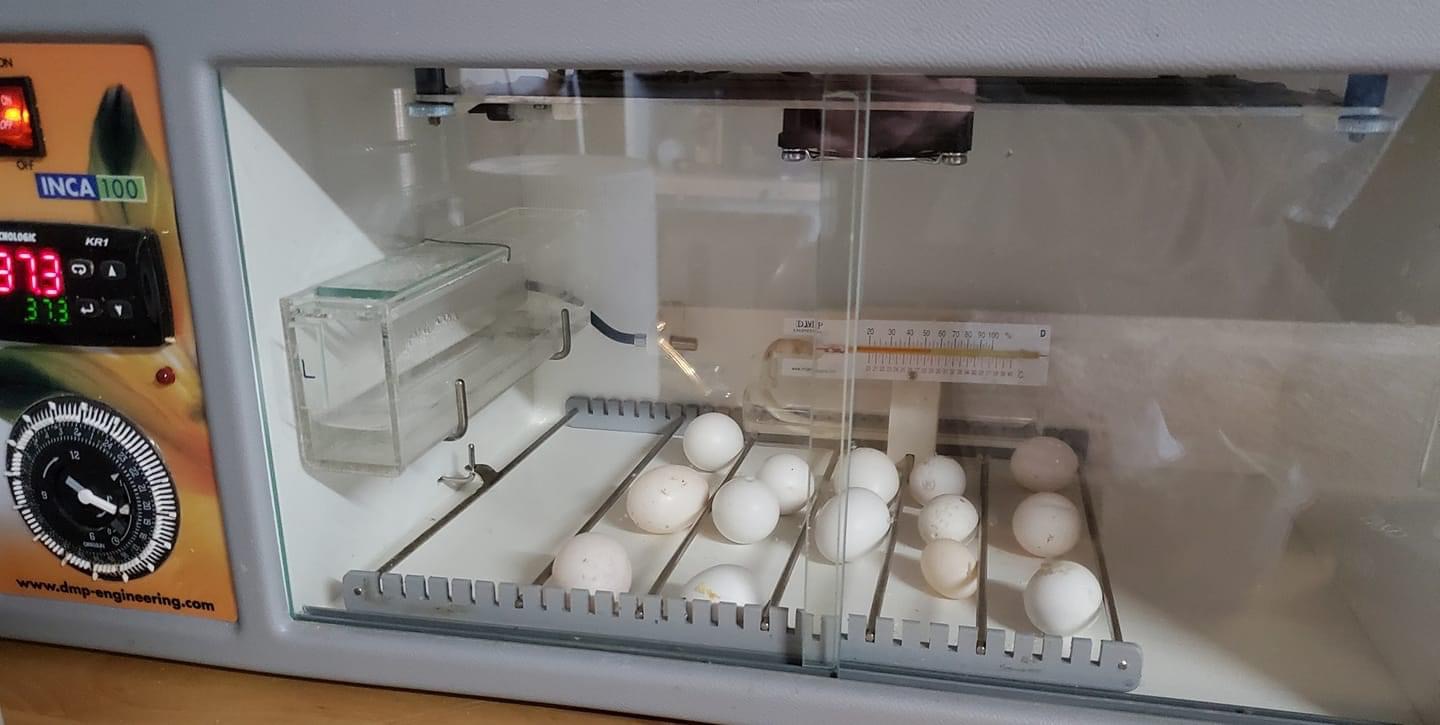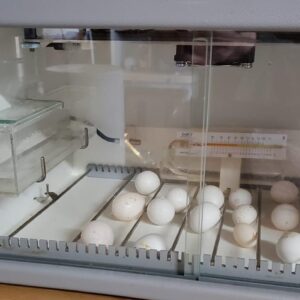Solomons cockatoo parrot eggs
$60.00
Solomon’s Cockatoo, also known as Ducorps’ Cockatoo (Cacatua ducorpsii), is a medium-sized white cockatoo native to the Solomon Islands. If you are interested in the eggs of Solomon’s Cockatoo, here are some key details:
Breeding and Egg Characteristics:
– Clutch Size: Typically, Solomon’s Cockatoos lay 2 to 3 eggs per clutch.
– Incubation Period: The eggs are incubated for about 25 to 28 days before hatching.
– Parental Care: Both parents share the responsibility of incubating the eggs and caring for the chicks after they hatch.
– Egg Description: The eggs are white and oval-shaped, similar to those of other cockatoo species.
Breeding Conditions in Captivity:
– Nest Box: Provide a spacious nest box, lined with soft wood shavings or similar materials.
– Diet: Ensure the breeding pair has a well-balanced diet rich in calcium and other nutrients to support egg production and chick development.
– Environment: Maintain a stable and stress-free environment with appropriate temperature and humidity levels.
Conservation Status:
Solomon’s Cockatoo is listed as Near Threatened due to habitat destruction and illegal pet trade. Efforts to breed these birds in captivity contribute to their conservation and help reduce pressure on wild populations.
Legal Considerations:
– Permits: Depending on your location, you might need specific permits to own, breed, or sell Solomon’s Cockatoos, as they are protected under various wildlife regulations.
– Ethical Breeding: Ensure you are sourcing birds from reputable breeders who follow ethical practices and contribute to conservation efforts.
If you have specific questions about breeding Solomon’s Cockatoos or need detailed advice on caring for their eggs and chicks, consulting with an avian veterinarian or a specialist in exotic bird breeding is highly recommended.
Description
Solomon’s cockatoo, also known as the Ducorps’ cockatoo or the Solomon Island cockatoo (Cacatua ducorpsii), is a medium-sized white cockatoo native to the Solomon Islands in the Pacific. Here are some key features and facts about this species:
Physical Description
– Size: Approximately 12-14 inches (30-35 cm) in length.
– Color: Predominantly white plumage with a slight pinkish tinge around the face and throat. They have a blue eye-ring and a short, recumbent crest that can be raised.
– Beak: Pale gray, strong and curved, typical of cockatoos.
– Eyes: Dark brown in males and reddish-brown in females.
Habitat
– Natural Habitat: Native to the Solomon Islands, they inhabit tropical forests, including lowland and hill forests, as well as mangroves and agricultural areas.
– Range: Restricted to the Solomon Islands.
Behavior and Diet
– Diet: Feeds on a variety of seeds, nuts, fruits, berries, and occasionally insects.
– Behavior: Known for being social and active, they often form small flocks. They are also known for their loud, piercing calls.
Conservation Status
– Status: Listed as Least Concern by the IUCN, but their populations are affected by habitat loss and the pet trade.
– Threats: Deforestation and illegal trapping for the pet trade are significant threats.
In Captivity
– Pet Potential: Solomon’s cockatoos are known to be affectionate and intelligent, making them popular as pets. However, they require a lot of mental stimulation and social interaction.
– Care Requirements: They need spacious enclosures, a balanced diet, and regular social interaction to thrive. They can be quite noisy and may develop behavioral issues if not properly cared for.
Solomon’s cockatoos are charismatic birds that require dedicated care and attention, making them suitable for experienced bird keepers. Their charming personalities and striking appearance continue to make them favorites among bird enthusiasts.




Reviews
There are no reviews yet.